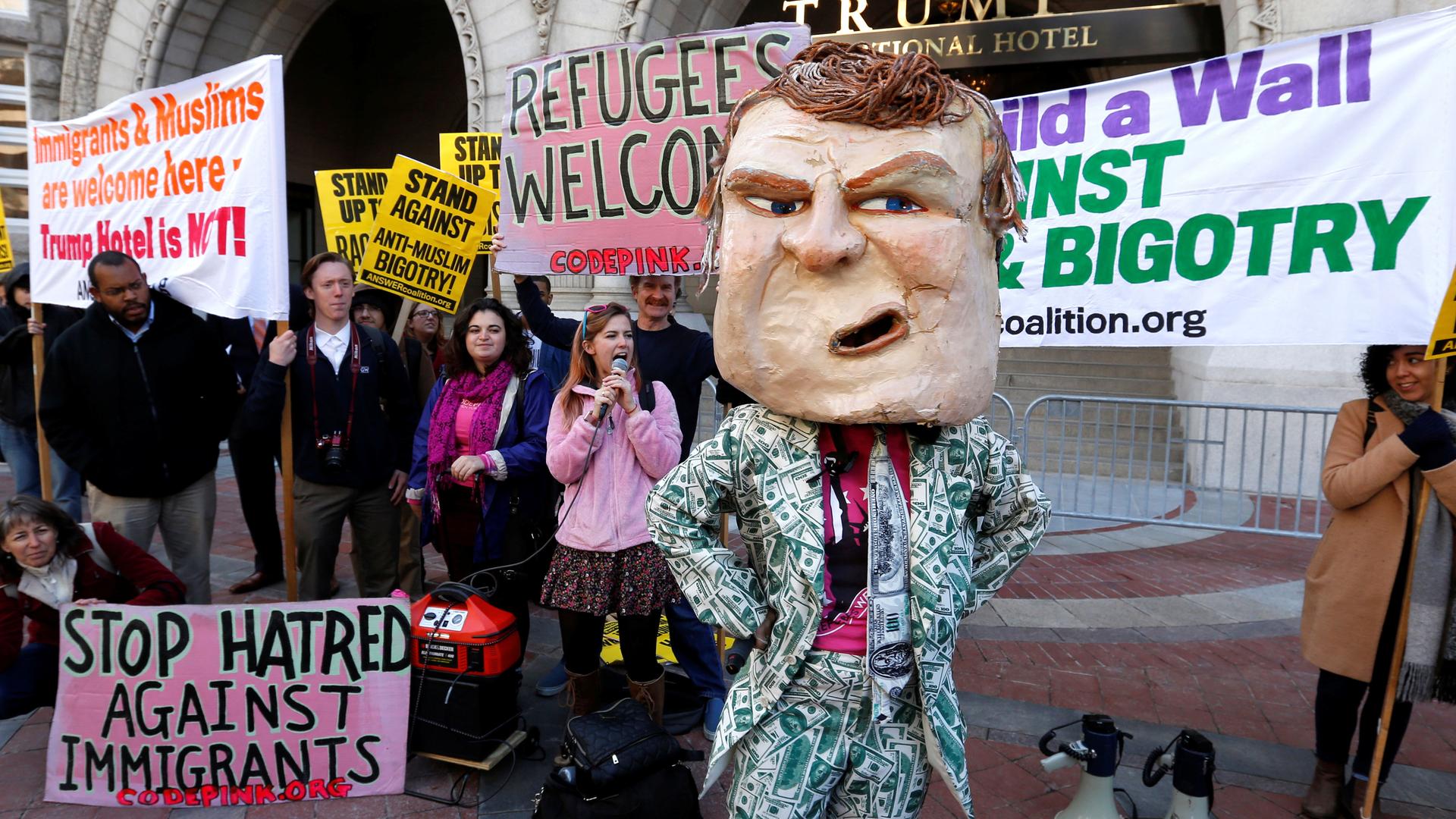The US election is frightening to some people living in fragile democracies
A demonstrator dresses in a Trump costume as people gather to protest against Republican U.S. presidential nominee Donald Trump on the sidewalk, outside the grand opening of his new Trump International Hotel in Washington DC on Oct. 26, 2016.
On a recent Sunday afternoon, when the barbecue and soccer were done, my friends and family gathered around the TV to watch "Fantastico," Brazil’s version of "60 Minutes."
The lighthearted mood shifts as the show and our conversation turns to the US presidential election.
One of my friends expresses what we all seem to be thinking: “Can you believe this? America is screwed with these candidates. … Makes me wonder about us.”
Maringá, in southern Brazil, is home to about 400,000 people. The economy is largely unaffected by global politics. Brazil has not been to war since World War II. So why do we care? For us, the US election is about something bigger. It's about our own democratic future.
In the past few years, Brazil's young democracy has had its own troubles. Many consider the current government illegitimate, with growing political polarization.
Somewhere along the way, in our attempt to perfect democracy, the fabric of what unites a nation has been shredded.
What does it mean for us when the US, the beacon of democracy, the strongest promoter of values such as liberty, tolerance and justice, is now caught up in a web of fearmongering, incivility, corruption scandals and voter fraud allegations?
READ MORE: Vote in 2016's first global US presidential caucus on Facebook
In Brazil, our Donald Trump is Jair Bolsonaro. He is a leading candidate for the presidency in 2018. Bolsonaro is an ex-military official, who has gained traction by joining forces with the evangelical movement and conservatives fighting progressive policies. He’s known for his lack of decorum, often insulting and even spitting at other representatives on the senate floor. Bolsonaro represents a part of society that would like to return to the discipline we had under military rule, which lasted at the national level until 1989.
On the flip side, Hillary Clinton’s background and current email and influence scandals closely mirror the current president in Brazil, Michel Temer. Temer was implicated in several shady backroom deals and has been investigated for corruption.
In many people’s eyes, neither of the Brazilian candidates are ideal, and yet, they seem to be the only options — especially in a political and economic climate that is unstable at best, and corrupt at worst.
So here I am. On a Sunday night, sitting on a porch 5,000 kilometers from Washington DC asking myself these questions: If the US, with its renowned institutions and long tradition of stable democracy, is struggling with authoritarianism and corruption, what can I expect for Brazil?
READ MORE: Here’s why many young voters see climate change as THE issue in 2016
If facts and substance have been jettisoned in a country with a far higher number of college graduates, what could I possibly expect in our next election? If the US cannot create real dialogue within its diverse society, what chance do more fragile democracies have?
This is why the 2016 US presidential election matters on a global scale. It’s not just about what the candidates will do once they are in office (though that is undeniably important). It’s also about what the candidates and the political process represent to nations that look to the US for guidance.
Because while the US government doesn’t rule the world, it does lead by example. And what kind of example is this? Young people like me around the world need a US that inspires us … a US that shows what free people can achieve when they work together.
We want to hear your feedback so we can keep improving our website, theworld.org. Please fill out this quick survey and let us know your thoughts (your answers will be anonymous). Thanks for your time!
